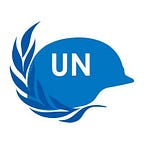Seeking Peace: The Essential Work of Women Peacebuilders
By Ambassador Melanne Verveer
As we approach Human Rights Day, I think of former First Lady Hillary Clinton’s historic pronouncement — “women’s rights are human rights” — at the Fourth World Conference on Women in Beijing, China in 1995.
Concluding this landmark event, 189 countries signed on to a Declaration and Platform of Action that laid out an ambitious vision and concrete steps for achieving gender equality. One of the goals called for the participation of women in conflict resolution and the protection of women living in countries wracked by armed conflicts.
25 years later, women’s rights advocates such as Hillary Clinton, who in 2013 founded with me the Georgetown Institute for Women, Peace and Security (GIWPS), continue to work on this critical issue and press for change. Women peacebuilders are making a difference around the globe, as documented in our recent season of the Seeking Peace podcast, although their work is not always as recognized as it should be.
In the 90s, much of the joint advocacy by Hillary Clinton and me focused on women’s necessary leadership and participation in conflict resolution. In Northern Ireland, we supported women from both the Catholic and Protestant traditions who wanted to move past bloodshed and create a more peaceful future. We met with women during the wars in Bosnia and Kosovo* and advocated for their efforts in relief and recovery; with Rwandan women struggling to rebuild their society after the genocide; and with Afghan women seeking help for desperately needed aid assistance as refugees before the Taliban were overthrown in 2001.
In 2000, former US Secretary of State Madeleine Albright signed on to the UN Security Council framework through Resolution 1325 (UNSCR 1352), building on the Beijing Platform and further recognizing the role women play in peace and security.
In the 22 years since UNSCR 1325 was signed, we have seen some progress on the Women, Peace and Security (WPS) agenda — but not enough. National Action Plans to implement the resolution have been adopted by nearly 100 countries. Peace Operations are becoming increasingly gender responsive, with most of their planning frameworks, reports and documents incorporating gender analysis and women, peace and security priorities. Local breakthroughs are recorded, such as in Mali where the proportion of women in the Peace Agreement Monitoring Committee reached 38 per cent in 2022, or in Abyei where women are now part of the traditional decision-making mechanisms.
But other indicators are not so promising. Our research (1) shows that over the past 20 years, on average, specific references and provisions to women, girls, and gender in peace agreements have remained stagnant at 25%. On average, only 14% of negotiators, signatories and mediators in official peace processes are women. The work of women peacebuilders on the ground rarely reaches the official negotiations. As a result, important issues that must be resolved don’t get addressed and peace is not sustainable. Turning to women peacekeepers, while there has been significant progress in uniformed ranks, there still too few women in military troops, for instance.
The WPS framework still needs to be fully integrated into foreign policy, development and defense policies and programs.
This is why, when Secretary Clinton joined us at Georgetown this week to honor women peacebuilders at our annual Hillary Rodham Clinton awards ceremony, she said: “We want action. We want change. We want decision makers to recognize the critical role that women are and should play in every aspect of national and international affairs.”
And she spoke about the courageous and critical role that women peacebuilders continue to play to advance human rights, justice and peace. “Amid such abject humanity, we see women leading the way forward… keeping women in conflict zones safe and holding perpetrators of gender violence accountable,” she concluded.
Some of these brave women — like Alokiir Malual, the first woman signatory to the South Sudan Peace Agreement and Anny Tengamendite Modi, the leader of an organization in the DRC that aims to eradicate discrimination towards survivors of gender-based violence including sexual violence — are featured on the latest season of our podcast, Seeking Peace, which we co-produced with UN Peacekeeping and Our Secure Future.
This Human Rights Day, I hope you will listen to their stories and do your part to advance the women, peace and security agenda.
Ambassador Melanne Verveer is the executive director of the Georgetown Institute for Women, Peace and Security and served as the first U.S. Ambassador for Global Women’s Issues. This guest blog has been authored by her and the views expressed are hers.
*References to Kosovo shall be understood to be in the context of Security Council Resolution 1244 (1999).
